According to Anthony Hallett’s article in the latest Subrogator magazine drones will prove a disruptive technology that will change industries, like subrogation, in the near future. Drones will improve safety regarding forensic inspections and investigations. Due to the high degree of control and the ability to harness LiDAR and photogrammetry these drones will enable investigators to conduct investigations from a safe distance. There will be uncertainty regarding the safe operation of drones and how to attribute liability in the event of an accident. Therefore, subrogation professionals will have to stay abreast of changes in federal and state legislation dealing with drones. The inevitable accidents that due occur as the use of drones proliferates means that subrogation professionals will have to learn how to investigate drone accidents and attribute fault based on local and federal laws. Lastly, the insurance industry as a whole will have to come to terms with the fluid risk/benefit calculus in the face of unmanned aircraft. This extends to the use of autonomous vehicles on American roads too. These vehicles will most likely prove drastically safer than human drivers, this will have huge ripple effects on the insurance industry.
Chaplin & Gonet now accepting North Carolina claims!
Chaplin & Gonet is proud to announce our continuing commitment to bringing subrogation excellence throughout the South-Atlantic with the acceptance of North Carolina subrogation claims! This expansion into North Carolina makes it easier than ever for carriers to find a subrogation firm with experience and expertise to handle their subrogation claims in the South-Atlantic region.
Interview with Carrier is Protected Work Product
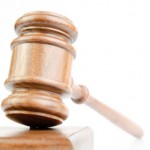 A recent ruling by the Prince William County Circuit Court declared that interviews by carriers with their insured regarding an auto accident fall within the shield provided by the “work product” doctrine of supreme Court Rule 4:1(b)(3). The Virginia Court of Appeals upheld the decision. Plaintiff’s motion to compel was denied for several reasons.
A recent ruling by the Prince William County Circuit Court declared that interviews by carriers with their insured regarding an auto accident fall within the shield provided by the “work product” doctrine of supreme Court Rule 4:1(b)(3). The Virginia Court of Appeals upheld the decision. Plaintiff’s motion to compel was denied for several reasons.
First, the court stated that the “work product” doctrine “protect[s] not only materials gathered by or for counsel in anticipation of litigation, but materials gathered by or for others, including the liability insurance carrier.” Furthermore, the court cited Veney v. Duke for the proposition that discussions of third party coverage is protected by the “work product” doctrine, and extended that logic to discussions of first party coverage. Finally, since the case at bar involved an insured who plead guilty to a traffic infraction and contested liability in a subsequent civil case, the court stated that the affirmative duty of defense counsel to prevent his client from testifying to a known falsehoods “offers sufficient protections.”
This ruling has important ramifications for Virginia subrogation attorneys, insurance defense firms and personal injury attorneys. For the Virginia subrogation attorney, this ruling confirms an intuition long held, that those conversations by insurance adjusters regarding third party coverage should be protected under Virginia’s “work product” doctrine. Insurance defense firms facing Virginia subrogation firms should expect to be stymied by this latest ruling when issuing subpoenas duces tecums in the future.
Justin McLeod
Virginia Texting Law May Need Tweaking
 A case in Fairfax General District Court, heard before Judge Thomas E. Gallahue, underscores the need for the Virginia General Assembly to overhaul the Reckless Driving code section to explicitly include texting while driving. In the case Judge Gallahue dismissed the reckless driving charge against Jason Gage since the statute in question, VA Code section 46.2-852 et seq. This issue directly affects Virginia Subrogation attorneys, who routinely use the convictions or pleas of guilt to driving offenses as evidence in the case against defendant drivers.
A case in Fairfax General District Court, heard before Judge Thomas E. Gallahue, underscores the need for the Virginia General Assembly to overhaul the Reckless Driving code section to explicitly include texting while driving. In the case Judge Gallahue dismissed the reckless driving charge against Jason Gage since the statute in question, VA Code section 46.2-852 et seq. This issue directly affects Virginia Subrogation attorneys, who routinely use the convictions or pleas of guilt to driving offenses as evidence in the case against defendant drivers.
The case in question arose from Jason Gage allegedly reading texts while driving, according to Gage’s cellular records, which show he received several text messages around the time of the accident. Kyle Alec Rowley, only 19 years of age, was fatally struck by Gage’s car when his car was parked in the right travel lane after ceasing to operate. Rowley’s hazard lights were illuminated and the car in front of Gage successfully navigated around Rowley’s vehicle, but Gage struck the rear of Rowley’s vehicle, killing Rowley.
According to police there were no signs of excessive speed or driving under the influence to account for Gage’s accident, which led them to investigate his cellular records. The police did not think to charge Gage under VA Code 46.2-1078.1, which levies a $20 fine for texting while driving. Since the reckless driving statutes do not include provisions proclaiming texting or talking on a cell phone “reckless” Judge Gallahue stated he had to dismiss the charge.
There is a strong argument that amending the reckless driving statutes to include a provision for texting while driving will send a strong message to Virginia drivers to cease texting while driving. There have been numerous studies demonstrating texting while driving exponentially increases the likelihood of an accident. For the Virginia Subrogation attorney having a clearly written, inclusive reckless driving statute makes prosecuting subrogation claims easier to prove in court, since a conviction or admission would demonstrate prima facie negligence on the part of the defendant.
Virginia Subrogation Referrals
If your law firm handles insurance defense or subrogation anywhere in the United States Chaplin & Gonet can help you and your clients meet your Virginia subrogation needs. Meeting national subrogation demands have never been easier with the help of Chaplin & Gonet. Contact our office today to speak to a representative about referring Virginia subrogation cases to Virginia’s trusted name in subrogation litigation: Chaplin & Gonet.
2012 NASP Conference
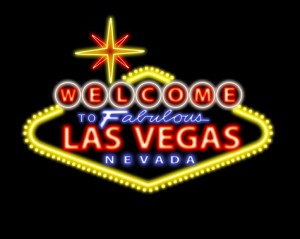 The annual NASP conference is taking place in Las Vegas this year, November 11th through the 14th. To learn more about the upcoming subrogation conference click here.
The annual NASP conference is taking place in Las Vegas this year, November 11th through the 14th. To learn more about the upcoming subrogation conference click here.
Don’ miss out, check out the NASP website for information on booking and sponsorship.
New VA Evidence Rule 2:411 Affects Litigation
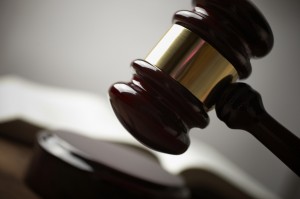 There is a long-standing doctrine at common law known as the “collateral source” rule. Virginia codified this in VA Code § 8.01-35, which states:
There is a long-standing doctrine at common law known as the “collateral source” rule. Virginia codified this in VA Code § 8.01-35, which states:
In any suit brought for personal injury or death, provable damages for loss of income due to such injury or death shall not be diminished because of reimbursement of income to the plaintiff … from any other source, nor shall the fact of any such reimbursement be admitted into evidence.
The collateral source doctrine arose to bar defense attorneys from raising the fact at trial that plaintiffs were compensated for their injuries or lost wages arising out of an injury. The public policy reason being that to do so could sway the jury and, in effect, punish the victim for carrying insurance and observing their social responsibility. The vast majority of the time the collateral source doctrine arises in personal injury actions or medical malpractice litigation. So how does the collateral source rule affect the Virginia subrogation attorney?
In the typical subrogation case involving an automobile accident the policyholder is the witness for the plaintiff (the insurance company) and the defendant is uninsured and testifying on their own behalf. The policyholder has been compensated for their loss and the vast majority of the time has nothing to gain or lose by the outcome of the case. They are merely acting as a witness. However, for the defendant the case can have major consequences, both financial and personal. Therefore, sometimes in a “he said, she said” case it can be prudent to point out to the trier of fact that the plaintiff’s witness has nothing to gain by their testimony, while the defendant has something to lose, sometimes a lot.
This can sometimes run into an objection by defense counsel if the opposing party is represented, citing the collateral source rule, or the judge, sua sponte , will express misgivings about bringing up the fact that one witness was compensated under an insurance policy. There is a strong argument that under current case law the collateral source doctrine does not apply to most property damage cases since the statute expressly refers to “suit brought for personal injury or death”, but there is a common misconception that the common law and the statute act as an absolute bar.
The new Virginia Rules of Evidence put any confusion to rest, however, in the text of Rule 2:411 “Insurance”:
Evidence that a person was or was not insured is not admissible on the question whether the person acted negligently or otherwise wrongfully, and not admissible on the issue of damages. But exclusion of evidence of insurance is not required when offered for another purpose, such as proof of agency, ownership, or control, or bias or prejudice of a witness.
When read in conjunction with VA Code § 8.01-35 it is clear that evidence of an insurance policy can be admitted into evidence to demonstrate the objectivity or bias of a witness. Therefore, the Virginia subrogation attorney can point out to the trier of fact that the policyholder has nothing to lose or gain by the outcome of litigation. Most of the time judges will make this connection on their own, but in close cases it can help to tip the scales to that crucial 51% needed for the “preponderance of the evidence” standard required.
We will continue to analyze the new Virginia Rules of Evidence to evaluate their impact upon subrogation litigation in Virginia, stay tuned.
Upcoming NASP Events
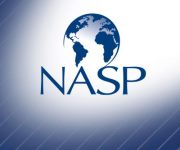 There are some great events coming up for NASP members who are eager to sharpen their subro skills. We have compiled some links to the flyers for you below if the webinar or event interests you:
There are some great events coming up for NASP members who are eager to sharpen their subro skills. We have compiled some links to the flyers for you below if the webinar or event interests you:
- August 15, 2012 – Exploring the Fiduciary Duties of Plan Administrators Flyer
- August 27, 2012 – The Subrogation Professional’s Guide to Workers’ Compensation Subrogation (Young Professionals Committee – Introductory Level Webinar) Flyer
- August 28, 2012 – End-of-Life Product Liability Losses and Recovery Opportunites Flyer
- August 29, 2012 – How process improvements can increase subrogation recoveries Flyer
- August 30, 2012 – Subrogating Farm Machinery Losses Flyer
- September 04, 2012 – Healthcare Subrogation Law Update Details Coming Soon
- September 11, 2012 – The Past, Present and Future of Using the Process of Elimination Methodology to Prove the Cause of a Fire. Flyer
- September 12 – November 7, 2012 – CSRP Webinar Series Flyer
- September 13, 2012 – Pressurized Tank Explosions Flyer
- September 26, 2012 – Alternative Dispute Resolution – Litigation is not always the only option Flyer
Using Judicial Records as Evidence
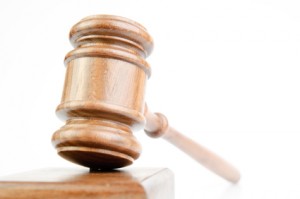 Subrogation attorneys dealing with a high volume of automobile cases often have to litigate cases “on the fly.” Policyholders can be tough to reach and often all the attorney has going into trial is the adjuster’s notes, which range in depth and quality of description. However, occasionally the job is made easier by a traffic case having arisen out of the same incident. The internet provides the Virginia subrogation attorney with a powerful tool: online case records search. A quick search before trial will reveal whether the defendant plead guilty, or was found guilty, of a traffic offense. So what can the Virginia subrogation attorney do with the judgment? VA Code §8.01-389(A1) allows the introduction of said judgment as prima facie evidence. The statute requires the records be “authenticated” by the clerk of the court where it was preserved.
Subrogation attorneys dealing with a high volume of automobile cases often have to litigate cases “on the fly.” Policyholders can be tough to reach and often all the attorney has going into trial is the adjuster’s notes, which range in depth and quality of description. However, occasionally the job is made easier by a traffic case having arisen out of the same incident. The internet provides the Virginia subrogation attorney with a powerful tool: online case records search. A quick search before trial will reveal whether the defendant plead guilty, or was found guilty, of a traffic offense. So what can the Virginia subrogation attorney do with the judgment? VA Code §8.01-389(A1) allows the introduction of said judgment as prima facie evidence. The statute requires the records be “authenticated” by the clerk of the court where it was preserved.
Practically, in most instances if the trial time gives the attorney some time to get into the clerk’s office before court then getting to court 30 minutes early or more will allow time to get a certified copy from the clerk. Most of the time the citation or case was litigated in the traffic court of the same jurisdiction in which the present civil case is being tried. Obviously, if it is a different court, or if trial time is first thing in the morning, counsel may have to go by court before he trial on another day or request it by mail if the clerk’s office obliges.
National Association of Subrogation Professionals (NASP)
Press Release from NASP Amicus Committee:
CGI v. Rose
Last year, NASP authored an amicus brief before the Ninth Circuit Court of Appeals supporting the plan in CGI Technologies and Solutions, Inc. v. Rose. Today, the Ninth Circuit release a decision in that case which is adverse to the subrogation industry. Specifically, the Ninth Circuit held that district courts could refuse to enforce clear plan language of an ERISA plan if it determined that enforcement of the language was not appropriate under the circumstances. In the Rose case, the Ninth Circuit remanded the case back to the district court to determine whether it was “appropriate” to enforce language that clearly disavowed the make-whole doctrine.
In issuing its opinion, the Ninth Circuit Court of Appeals adopted the rationale used by the Third Circuit in US Airways, Inc. v. McCutchen, 663 F.3d 671 (3rdCir. 2011). US Airways filed a petition for certiorari to the United States Supreme Court on the McCutchen case. NASP (along with SIIA and the Western Pennsylvania Teamsters) authored an amicus brief supporting the petition. Coincidentally, the Supreme Court is scheduled to conference that petition tomorrow. As such, we should know soon whether the Supreme Court will review the issue addressed in the McCutchen and Rose cases.
Kammy Poff, Amicus Committee Chair
Joseph Willis, Legislative Affairs, Chair
